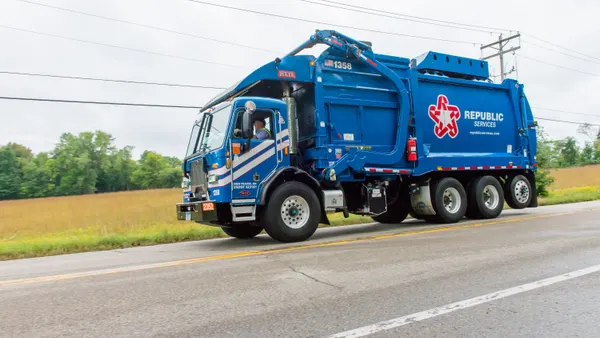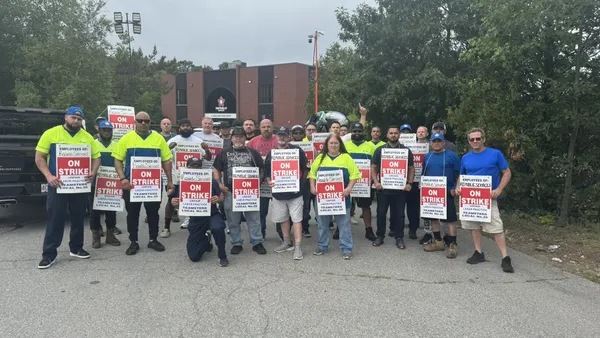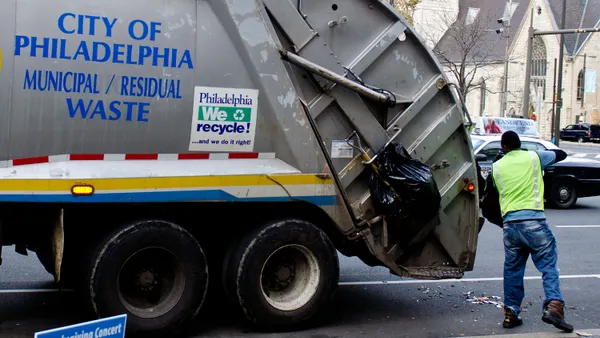Dive Brief:
- According to a survey of 1,000 International Solid Waste Association (ISWA) members, 97% believe that technology will in some way or another affect the waste industry, with 50% of those respondents saying that serious changes will be felt by 2030. ISWA says that this is the first global survey focusing on the future of waste management.
- During a panel discussion at the ISWA World Congress and WASTECON 2017, ISWA President Antonis Mavropoulos said that a "huge shift is coming," in terms of how people interact and use technology. Mavropoulos added that there are "serious waves of change that will leave nothing without substantial impact." He said waste professionals would be making a "big mistake" if they thought the waste sector were immune to technological impacts.
- Survey respondents said that the reuse and redesign of products would be the sector most impacted by the Fourth Industrial Revolution. In aggregate, the respondents said that driverless cars would have the least amount of impact on the waste management industry. Over 44% said that their companies or organizations should invest in big data, social media, new sensors and mobile applications. Compology CEO Jason Gates said he interpreted that as industry professionals seeing "collecting information and getting it out" as being most important to companies, especially from an educational and marketing perspective.
Dive Insight:
Mavropoulos has talked about futurism and the waste industry before, so his interest in the topic shouldn't come as a surprise. While he's focused before on concepts like process automation and robotic workers, the recent discussion in Baltimore primarily centered around technologies and processes that might seem more approachable or realistic. All companies should be turning an eye toward data collection, which can be especially useful for fleet management. Some of the biggest players in the waste industry have recently said they still had a long way to go when it came to utilizing data — so it's not too late for any players in the waste industry to get involved.
"Today everybody knows that they need technology, but they’re not intimate with it," said Don Diego Padilla of FleetMind. "I think we're slow to change as an industry." With recent investments in landfill gas capture and materials reuse technology, for example, the industry is showing a continued focus on innovation. A recent announcement of a partnership between Waste Industries and a tech company to prepare for the "internet of things" shows, at the very least, an interest in technologies that seem more "futuristic" than new plastics.
The relatively small amount of respondents who thought that driverless vehicles would have a large impact on the waste industry was a striking result. Just 12% of respondents thought driverless tech was worth investing in and driverless vehicles were rated to have the least impact on waste management and recycling in the next 15 years. However, a report from May showed that over 4 million commercial drivers could be out of a job by 2030 because of automation. Volvo debuted a driverless collection truck that same month, and the Department of Transportation and the U.S. House of Representatives are both moving forward on rulemaking around self-driving cars.
While there are some legitimate and serious safety concerns about safe driving trucks — like the possibility that they could be hacked into, turning trucks into weapons — it is increasingly likely that self-driving technology will reach the waste industry. With more companies investing in self driving technology, and with self-driving cars becoming smarter and even more ethical all the time, it is entirely possible that the "waves of change" described by ISWA's president could look a lot like self-driving trucks hauling municipal waste.









